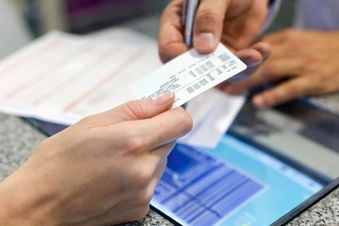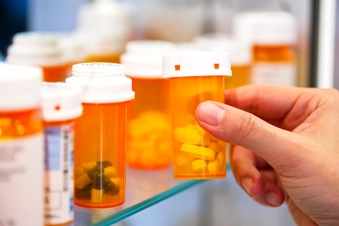Preparing for Your Major Depressive Disorder Specialist Appointment Checklist

Research the Type of Doctor You’ll See
There are many ways to find a specialist for major depressive disorder. You can ask your primary care doctor or your therapist for a referral. Or you could chat with family and friends to see if they’ve connected with a good doctor.
You can also do your own research online to discover specialists. Look into what your specialist does, what they have experience treating, and if they fit any other preferences you have.

Call the Office Ahead of Time
Before your appointment, call the specialist’s office and make sure you bring all of the things you need for your appointment. Ask about the doctor’s fees, what kind of payment methods they allow, and what their cancellation policy is (just in case).
If you weren’t able to find information online, you can also ask about the specialists qualifications and experience over the phone.

Plan Your Route
Even if your major depressive disorder expert is close to your home, it’s best to create a plan so that you’re not stressed before your appointment.
Make sure you know the location and address of your appointment. Plan your trip time the night before and plan to get there early. Leaving extra time before your appointment will allow you to stay calm, especially if there’s traffic or other unexpected delays.

Confirm Your Insurance Information
Make sure you have your insurance card, if you’re using that to pay for your appointment. Make sure your major depressive disorder specialist takes your type of insurance. Bring your card with you to your appointment.
If you plan to use Medicare, Medicaid, or another method to help pay for your treatment, it’s a good idea to make sure your doctor can work with your needs.

Set Up an Interpreter
If the doctor you see doesn’t speak your language, make sure you have an interpreter to help out. The doctor’s office can usually offer you one.
For major depressive disorder, you might feel better talking to someone who’s able to fully speak your language. You might feel that you can express yourself better this way. An interpreter can be the bridge that connects you to a skilled expert.
In all cases, tell someone if you don’t understand what was said.

Use the PACE Method
It’s impossible to always have all the time you’d like to talk to your major depressive disorder specialist. To make your appointments more effective, follow Ohio State University's PACE:
- P - Provide information on how you feel.
- A - Ask questions if you need more information.
- C - Clarify the things you hear.
- E - Express the concerns you have.
Before your appointment, write down responses to each letter. Give this sheet to your doctor at the start of your appointment so that you stay on track.

Bring Your Medications
Your doctor will want to know all of the medications you take. This includes all over-the-counter medicines, prescription medicines, vitamins, supplements, and herbal remedies.
You can write down the name and dosage you take. Or you can bring all of them in a bag to your appointment.
If they know the medications you take and how they affect your body, your major depressive disorder specialist will understand how to treat you more effectively.

Bring Information About Your Medical History
Give your doctor information about any illnesses, conditions, surgeries, and other doctors that you go to. You can ask your major depressive disorder specialist to give you a medical history sheet to fill out at home before.
Your doctor might also ask about your family’s medical history. If you know about any depression or mental health conditions in your family, tell your doctor.

Bring a Buddy
If a family member or friend makes you feel better, you may be able to bring them along to your appointment. They can either wait outside or join you during your session. A loved one can help collect information that your major depressive disorder specialist gives you.

Take Helpful Tools With You
If you need contacts, glasses, or a hearing aid, make sure to bring these to your appointment. It’s important that you can see and hear as well as possible. Your doctor will give you important information and you want to make sure you absorb as much as possible.
Make sure your hearing aid works well before your appointment. You can also tell your doctor that you have a hard time hearing or seeing.

Create a List of Goals
With major depressive disorder, your goals may get thrown off. But that doesn’t mean you don’t want to eventually reach them. If you bring a note with your goals written down, you and your doctor can talk through them together. You can set long-term and short-term goals as a team.
If they know your goals, they can help find a treatment that suits them. Certain treatments for major depressive disorder might work better for you based on the things you want to achieve.

Learn About Different Treatments
Before your appointment, it might help to get an idea of the different treatments for major depressive disorder. That way, when you talk to your doctor, you’ll have a basic idea of some options.
Your appointment will be more effective if you have some knowledge about treatments. You can also begin to think about which ones that best suit you.
Show Sources
IMAGES PROVIDED BY:
1) MoMo Productions / Getty Images
2) Xuanyu Han / Getty Images
3) egd / Getty Images
4) Frederic Cirou / Getty Images
5) NoSystem images / Getty Images
6) Mayur Kakade / Getty Images
7) Tetra Images / Getty Images
8) Mikael Vaisanen / Getty Images
9) Westend61 / Getty Images
10) mikroman6 / Getty Images
11) EyeEm / Getty Images
12) Tetra Images / Getty Images
Sources:
NAMI: “How to Prepare for Your Psychiatric Appointment.”
The Royal Australian and New Zealand College of Psychiatrists: “Your First Appointment.”
National Institute on Aging: “How to Prepare for a Doctor’s Appointment.”
American Heart Association: “Preparing for Medical Visits.”
Mental Health America: “Preparing For Appointments.”
Y2 Connect: “Steps to Make A Doctor’s Appointment.”